#Meditations on first philosophy
Explore tagged Tumblr posts
Text
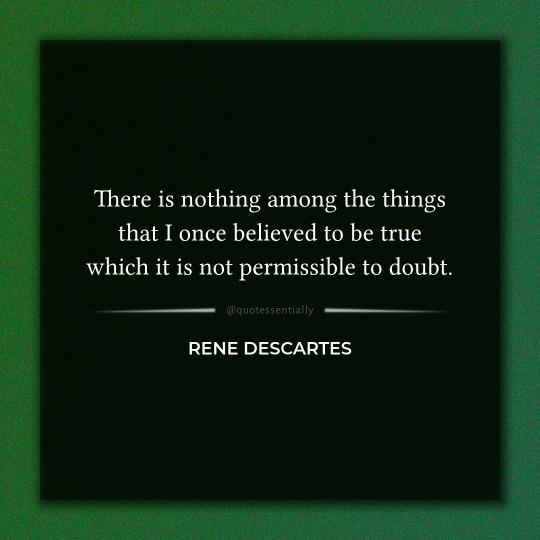
From Rene Descartes’s Meditations on First Philosophy
9 notes
·
View notes
Text
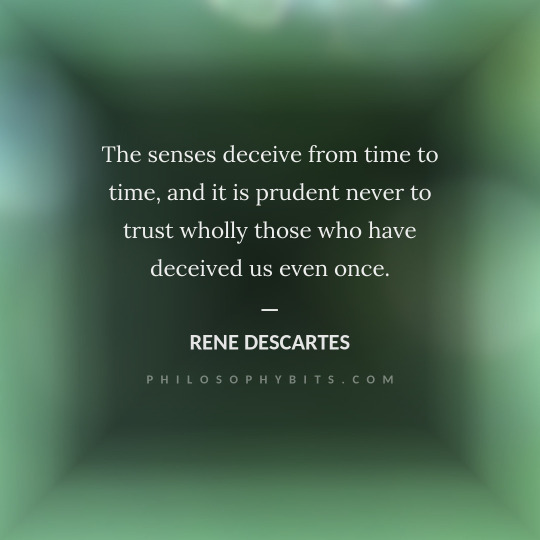
#philosophy#quotes#Rene Descartes#Meditations on First Philosophy#Descartes#senses#deception#trust#prudence
6 notes
·
View notes
Text
the previous owner of my edition of descartes’ meditations annotated the second meditation with the words: “Des. is unwell”
1 note
·
View note
Text
I know it seems like
it’s ending. But there’s no such
thing in the first place.
🍁 Red Leaf Haiku by © John Clark Helzer
#haiku#redleafhaiku#poetry#poems#poem#philosophy#meditation#poets on tumblr#inspiration#writing#end#ending#first place#universe#life#existence#today
8 notes
·
View notes
Text
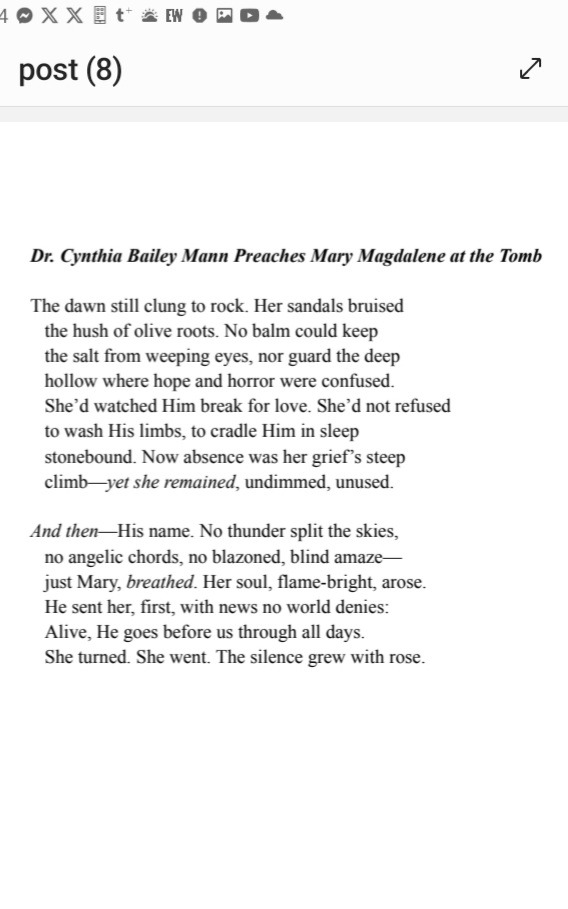
#Dr. Cynthia Bailey Mann#mary magdalene#meditation#poetry#philosophy#mysticism#supernatural#essay#transcendence#Mary of Magdalene#the first church
0 notes
Text
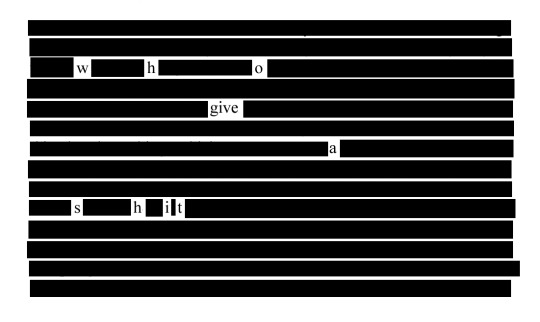
meditations on first philosophy (1641) - rene descartes
"who give a shit"
#rene descartes#ok#so this is a reference to that post#bc i cant stop saying it#sorry i havent been active#ive been working on an opera#and have been having like p bad health issues#but its ok#learning to crochet a minecraft frog#idk if itll be like any good#whatever life is love anyway#blackout poem#blackout poetry#author#book#poetry
63K notes
·
View notes
Text
Buddhism: Lost in Translation
Beware re-translations. The Buddha spoke a Sanskrit-related language. Sanskrit never went extinct. ‘Dukkha’ still means ‘suffering’, sorry. Many Western Buddhists try to manipulate the message, however slightly, to make it more appealing to Western tastes, but that says as much about Western tastes as it does about Buddhism. The issue in question, of course, is the First Noble Truth, which states…
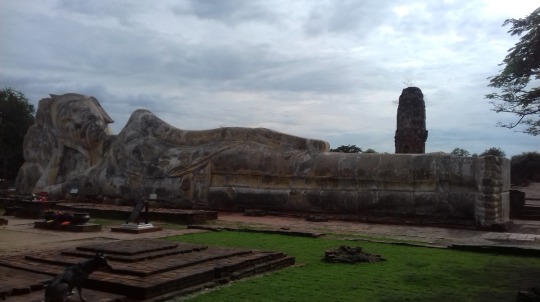
View On WordPress
#Buddhism#dissatisfaction#dukkha#Existentialism#First Noble Truth#Google#Hardie Karges#India#language#meditation#Middle Path#nirvana#philosophy#rebirth#reincarnation#religion#Sanskrit#stress#suffering#Virtual Reality
0 notes
Text
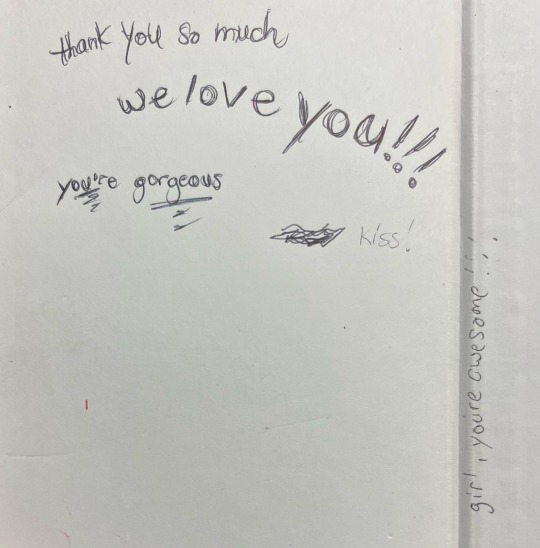
Normally I don’t approve of people writing in library books but this is too cute.
#library stuff#the book in question is ‘discourse on method and meditations on first philosophy’ by descartes
1 note
·
View note
Text


SYNOPSIS ᯓ Choso just wants to be a good TA. You just want to see how many ways you can make him stutter. One thing leads to another, and now you're straddling him in your office, all red-faced and shaking while you toy with him like he's your favorite little experiment. Maybe if he put as much effort into his work as he does into holding back whimpers, he wouldn't be in this situation.
PAIRING ᯓ PhD Student!Choso x Professor fem!reader
WARNINGS ᯓ smut MDNI, sub!choso/dom!reader, emotional manipulation?, humiliation/degrading, praise kink, power dynamics, exploitation of authority, orgasm denial, edging, LOTS of teasing, you're mean to him (sorry), he's so pathetic, PWP, he's VERY nervous, you shame him, size kink, cowgirl, oral (f. receiving), you make him beg.
WORD COUNT ᯓ 7.8k

Choso heard stories about you long before he even considered applying to be your TA. He wasn’t a stranger to the rigorous demands of academia, being a PhD student studying philosophy, but your name whispered brilliance. Your name carried a mythical weight among professionals in the field and graduate students. You were untouchable, a tenured professor who commanded respect effortlessly. Your reputation was one of absolute professionalism, unyielding precision, and a razor-sharp intellect that left even the most brilliant students in awe.
Your class on Epistemology was legendary, known not only for its rigorous readings but its ability to make students question everything they knew about truth, about reality itself. No one walked out unchanged, students feared you could see through them, dissecting their arguments with a surgical kind of precision. You set high expectations, daunting, and for a student like Choso, they were a challenge he couldn’t resist.
So when the position for a TA under you opened up for the semester, he didn’t hesitate for a second. He poured over his application, carefully crafting his cover letter that highlighted his experience as a research assistant and unwavering passion for the field. He was nervous, sure, but also excited. This was the opportunity to work directly under you, to sit under your tutelage, to absorb the wisdom you offered.
He was eager to prove himself, desperate to impress you. He imagined sitting in your classroom, assisting with discussions, offering insight that could one day make him as scholarly as you, someone he both respected and admired. Most of all, he sought your approval. The thought of working alongside you, hearing you explain the nuances of Plato’s Theory of Forms or the implications of Descartes’ Meditations, it filled him with a sense of purpose.
The day he received the email confirming his position, being selected among a pool of talented graduate students, handpicked by you, he felt an overwhelming rush of pride. The prestige of being your TA was a sign of recognition here, a chance to live up to his potential, and learn to command the same respect you did.
But the reality of working under you was much harsher than he anticipated.
The first time he entered your classroom, he wasn’t only nervous because of the work, rather your presence. A quiet storm, moving around with such command making his heart race every time you stepped toward the podium. You were perfectly poised, a figure of authority donning a sleek pencil skirt and the kind of professional elegance that made everything around you pale in comparison.
Your heels would click sharply on the floor when you walked across the room, the sound echoing through the lecture hall like a warning. But it wasn’t only your appearance, it was the way you held yourself. Radiating confidence, he couldn’t help but feel shallow, the way you owned every lecture was intoxicating, and he was nothing more than a mere shadow in your presence.
It had only been a few weeks into the semester when the first real blow came.
He was sitting beside you at the front of the lecture hall, his notebook open, eyes flicking between your slides and the notes he’s desperately trying to keep up with.
It’s cute, in theory. The way he leans forward, brows furrowed as if writing it all down will somehow prove his worth.
If only he were competent.
You click to the next slide. “Of course, for any decent researcher, attention to detail is everything.” You pause for effect, eyes sweeping across the room, watching students as they try to follow.
Then your gaze flicks to Choso. He’s scribbling frantically, you can see it. The mistakes in his notes. His rushed handwriting. The misaligned bullet points.
A sharp glance, your lips curling slightly. “Some people…” you begin, words hanging in the air as you lean forward. The class doesn’t notice, but you can see the discomfort creeping into his posture, the way his shoulders tense and the sudden stillness in the air around him when his eyes meet yours. “Some people never quite get the hang of it.”
You hold eye contact for a second, long enough for him to feel the weight of the unspoken accusation settle on his shoulders.
You move on, clicking to the next slide, tone neutral. “Now, moving on…”
The rest of the lecture proceeds, but he doesn’t write a single word more. Instead opting to stare at the blank page in front of him, fully trapped in that moment and fighting the surge of embarrassment and shame that you’ve made him feel.
And you’ve seen students come and go. Good TAs, bad TAs. They all blend together in your mind. But Choso was different. He was a student that can’t look you in the eye without flushing red, and it was more than power, it was the challenge.
You’ve been in your position long enough to know how to break people, and Choso is no different. He’s like a puppy that keeps wagging its tail at you, begging to be trained, not realizing the game you proposed. It was in the way he wanted this job so badly, the way he silently pleaded for your approval, made it so easy to exploit him. His pathetic desire to make you feel proud, his eagerness to please, it feeds into everything you do.
-----
The classroom is quiet, students were hunched over their exams, it was the last test before the final. You let them work in silence, watching from the front of the room, the soft scratching of pens and the occasional sigh the only sounds that break the stillness.
Choso sits across the room, positioned at a desk near the front and keeping an eye on the students. He shifts uncomfortably in his chair, his brow furrowed in concentration. The way he struggles to seem composed, even when he’s the one in control of nothing, only adds to your irritation.
A student approaches your desk, a timid look on her face as she whispers to you, “Professor, I think there’s a mistake on my last assignment.”
Without bothering to glance up, you extend your hand and she places the paper in it. The moment you catch sight of Choso’s untidy scrawl in bright red ink, your lips curl into a contemptuous smile.
His work, always a mess, full of errors. It’s a constant frustration.
You don’t give him the benefit of looking at you. Instead, your eyes flick to his figure sitting across the room, he leans back in his chair, lost in his own word with no idea that you’re about to make his day much worse.
You get up from your chair slowly, hands pushing on the arm rests, holding the sheet in one hand as you cross the room. The sound of your heels clicking against the tile sharp. Click. Click. Click.
You stop by his desk, leaning down just enough that only he can hear the words you’re about to say. He doesn’t move, doesn’t acknowledge you directly, but you see his posture stiffen as you approach.
“You’re embarrassing,” you murmur softly, voice ice-cold.
His body goes rigid, a slight tremor running through him as if he’s been struck.
Your hand slides onto his shoulder, and for a moment it looks like a friendly, casual gesture. But your fingers curl slightly, nails digging into the taut muscle under his button-up, and you feel his body jump beneath your touch.
He’s a fucking wreck.
And he doesn’t know how to respond, just frozen, staring straight ahead, struggling to keep it together. The warmth of your breath spills from glossy lips right against the shell of his ear as you lean in closer, letting the tension build.
“Maybe I should start reviewing every single thing you grade,” your hand on his shoulder shifts, thumb grazing along the seam of his shirt. “Since you clearly can’t be trusted to do it properly,” you whisper.
His throat bobs as he swallows hard, fear evident in the way he clenches his jaw.
You pull away slowly, letting your hand drag across him as you stand, just long enough to see him take hard blinks and keep his gaze ahead steady. You slide the assignment on his desk, the paper crinkling slightly as it lands.
“Fix it,” you command, voice sharp, leaving no room for protest.
Without waiting for him to respond, you turn on your heel and walk away, the clicking sound filling the silent room once more as you return to the front of the classroom.
Choso’s still frozen at his desk, completely in a haze under the weight of your words and touch.
As the last of the students begin filing out, tossing their exams in a stack on your desk, Choso remains behind, paper still clutched in his hand.
You’re at the front of the room, tidying notes into a binder and purposefully avoiding his gaze, knowing that he’s still there, waiting for something. You don’t look up as he approaches.
When he finally speaks, it’s quiet, hesitant, almost apologetic. “Professor… I’m sorry about earlier,” he says, eyes flickering between you and the floor. “I- I know I didn’t do a good job grading. I’ll fix it, I-I promise.” His words come out in a rush.
You take your time, still sorting through papers, continuing your task as though he doesn’t exist. But his presence makes the hairs on your neck stand up with something almost predatory.
Finally, you glance up at him, long enough to see him shift on his feet, eyes darting.
“Mm,” you hum in acknowledgment, tone dismissive. “I’m sure you will.” You swipe the paper from his hand without a second look, barely sparing it any attention.
He just nods stiffly as you walk out of the classroom, knowing better than to argue, knowing better than to ask for anything more.
Later that day, your office door clicks shut, the soft echo lingering in the corners of the room. Papers are scattered across your desk, half-completed research articles, grading rubrics, a few unremarkable notes from students, all piled in chaos. A dull light from your computer screen casting an ethereal glow, the blue light illuminating your fingertips as you twirl a pen between them.
You lean back, legs crossed, heels resting against the edge of the desk as you observe the mess around you. You let your eyes drift, momentarily unfocused and the image of Choso’s face flash in your mind. He had been so eager to fit in, to prove himself… but how could he? How could someone so utterly useless ever meet your standards?
You bite your lip, a small smile tugging at the corners of your mouth. The memory of him earlier lingering, his hair a mess, that poorly knotted tie hanging too loosely around his neck, the fraying button-up that clearly hadn’t seen the iron this morning. Typical.
You let the pen twirl a little faster, the repetitive motion almost hypnotic. The day’s events replay, the way his eyes flickered nervously when you’d reprimanded him. The way his body had gone stiff as if trying to shrink into himself when you walked past his desk.
How pathetic.
Just being around the boy was hard to bear. His fidgeting, the way he couldn’t even look you in the eye without stumbling over his words. So desperate to get everything right, but none of it ever worked.
You glance down at a paper sitting in the corner of the pile, one of his many grading errors. The jagged red ink lines seem to jump off the page as if to mock. You slowly trace a finger along the harsh strokes, following the trail of his mistakes and his attempt at being meticulous.
You lick your lips, fingers pausing, pressing just a little harder than necessary against the sheet. It felt like you could feel the weight of his failure through the page. You weren’t crazy, right? Not when he had spent far too much time overthinking every little assignment. Not when he couldn’t even articulate the simplest concepts, as if his brain short-circuited the moment you expected him to speak.
But he tried.
Your heart beats a little faster, a strange warmth curling at the base of your stomach, the heat settling between your thighs. God, how frustrating he was. How helpless he was. But that was part of the charm, wasn’t it?
Poor Choso. He just couldn’t stop making mistakes, could he? The harder he tried, the worse it got. You glance at the door to your office. You could already imagine his reaction: the nervous twitch in his jaw, the way he’d bite his lip and avoid your eyes.
You lean forward in your chair, eyes narrowing. The thought of him, so desperate to be competent, so hungry for your approval, and yet never quite good enough, makes your stomach flutter with anticipation.
No. He wasn’t good enough. Not by a long shot.
-----
The day of the discussion arrives, two weeks before the final. You’ve decided it’s time for Choso to take the reigns, to lead the class for once. You’re perched in his desk, legs crossed just so as he stands at the front, slightly off-center, hands moving in broad gestures as he discusses a key theory.
The topic is dense, abstract, and the kind of thing that demands complete precision. You’re leaning forward, attention fully on him. He clears his throat, adjusting his glasses before launching into his explanation, voice tight.
“Right,” he begins, “Kant’s Critique of Pure Reason, it’s important to understand that the synthetic a priori judgments are, uh, foundational in the way we… conceptualize knowledge.”
He gestures expressively with his hands. He knows the material, there’s no doubt about that. But you can tell he’s more worried about the eyes on him, about what you might think of him.
He continues, voice more certain now, “So, these judgments are necessary for, um, for experience, not determined by it, but-” He stops himself mid-sentence. “Wait, no. What I meant was-”
He shifts uncomfortably, the tension clear as he’s aware of his misstep.
You lean forward in his desk, eyes fixed on him. His gaze flickers to you briefly, just a quick glance. Your posture is relaxed, calm, while he’s standing in front of the lecture hall, visibly trying to regain his composure.
He shifts again on his feet, a small nervous smile pulling at his lips. “Right, so… Kant was saying that all knowledge has a, uh… a conceptual framework that is separate from experience. But the synthetic a priori judgments are, are what make those structures possible,” he finished, giving a slight nod as if to affirm that he’s back on track.
It’s a minor slip, and you know he knows the answer. Still, you make a mental note of his mistake. He wasn’t completely wrong, but there was a gap in his explanation, and you could tell he knew it.
The class remains silent, and it’s clear he’s still on edge. He huffs out a slight exhale, relief washing over him that he’s made it through.
“Choso,” you say, making it clear you caught his mistake. He immediately looks up.
“I think you meant to say something else there,” you continue, with a cool, knowing smile. “I’m sure you know the right answer.”
His eyes flick to the floor, fingers fidgeting with the end of his tie, but he nods quickly. “I… yes, sorry. I meant to say that Kant believed synthetic a priori judgments are, um, necessary for the possibility of experience itself-”
You wave a hand dismissively, cutting him off with a subtle smirk. “No need to over-explain,” you murmur. “It’s just that it’s important to be precise. Every detail matters, right?”
You slide out of the desk when class ends, Choso still standing at the front, moving his weight from one foot to the other. Your heels clack softly against the floor as you make your way toward him, eyes looking at him with mild amusement.
As you pass, you tuck a stray piece of hair behind his ear with the slightest touch. It’s a soft gesture, a sweet one. His breath hitches, stiffening under the sudden contact.
“Meet me in my office,” you say, voice low, almost languid. “I’ve got a meeting, but it’ll be quick.”
You continue walking toward the door, letting the words hang before you pause, turning to look back at him. Your eyes sharp, voice carrying the weight of authority as you speak, “and don’t touch anything.”
Your tone is almost teasing, like you’re reprimanding a child, all gentle but firm. He’s left standing there, flustered, face heating up as his fingers twitch at his sides as if the small command has him wondering what exactly you meant. You don’t wait for him to respond, just leaving the room, the door clicking shut behind you with a soft finality.
And as you walk down the corridor, you can’t help but laugh knowing he’ll be in your office, waiting.
Your office is a fortress of calm, now meticulously organized in a way that feels clinical. The large wood desk sits center, piled high with stacks of paper and worn leather-bound books. The walls are lined with shelves, some overflowing with volumes on theory and philosophy, others scattered with journals and scribbled notes from various conferences. It’s a space of sharp precision, where everything in it felt in place, except for him.
He sits across from your desk, back stiff and slumped slightly as his fingers curl lightly into his pants. His heart pounds like a drumbeat that won’t slow, the clock on the wall only ticking away in rhythm to his restless breaths. It’s as if time stretches and warps, turning each minute into an agonizing eternity. There’s nothing he can do but wait, gaze flickering over the papers on your desk, never daring to focus for too long on anything specific. Your absence only amplifying his discomfort, pulling him deeper into a thick haze of anticipation.
Finally, the door creaks open.
You walk in without a word, the sound of your heels clicking as you slip into your chair. The sound of your computer turning on and whirring to life filling the silence, fingers typing away with efficiency. He’s left there, waiting. Staring at you, helplessly, his body rigid as thoughts churn in a fog of confusion.
Ten minutes pass. Twenty.
And then, he shifts in his seat. The air hums with a quiet electricity, his throat tight with words he can’t find. He clears it, his eyes darting toward you in the hopes you’ll acknowledge him.
You don’t.
You look up slowly, gaze sharp but unhurried. “Something wrong?”
He stammers, voice barely above a whisper. “No, professor.”
You smile like a cat that’s caught its prey, but isn’t ready to devour it quite yet. “Then sit there and be quiet.”
And he does. Every breath of his a loud intrusion in the stillness, the clicking of your keyboard mocking him, rhythmic hands moving quickly over keys as his eyes wander over every detail of you. He can’t stop looking, the way your fingers move, posture effortlessly posed, the sharp curve of your legs beneath your desk, the subtle shift of your bare toes from under the heel. It feels like he’s drowning in every small, mundane action of yours, all of them a torment.
The clock ticks on, minutes stretching into infinity.
And then, you stretch your arms languidly, bones cracking as you lean back in your chair. You look at the clock across the room. “Huh. It’s late,” you muse, voice a soft note of feigned innocence. You tilt your head toward him, a delicate smile across your lips as you fix your eyes on him. “Why are you still here, Choso?”
His throat closes around the words, heart pounding in his heard. “You-” His voice faltering, mouth dry. “You wanted to meet here after lecture.”
You blink slowly, almost a mocking look crossing your face. “Oh. Did I?”
Just like that the tension breaks, leaving him searing in his own skin. He burns under the weight of your eyes, under your words that feel like an open flame. His thoughts scatter, all wild and frantic, and all he can do is stare at the way you tilt your head, lashes fluttering lazily.
You wave a hand, dismissive. “Go home.”
He watches as you turn back to the papers on your desk, as if this entire charade was just nothing to you. But your voice cuts through again, sharper. “And by the way,” you add with a smirk,” You messed up today in lecture.”
He freezes, words hitting like a punch to the gut. He scrambles for something to say, but it’s too late. His body is already moving, pushing his glasses up while grabbing his backpack with shaky hands. He stumbles as he tries to gather his things, body betraying him.
The bulge in his pants painfully hard, his frustration a deep, burning ache that follows him out the door. It’s too much. But it’s exactly what you wanted. And somehow that thought alone sends a flush of heat rushing through him as he fumbles for the door handle.
-----
The week before finals always felt like a battlefield, except instead of swords and bloodshed, it was emails marked urgent, frantic office hours, and the never-ending wail of students who suddenly cared about their grades.
Your days were a blur of coffee cups, research deadlines, and an endless cycle of meetings that ran into each other like waves against the shore. If there weren’t department heads breathing down your neck about conference presentations, it was undergraduates pleading for regrades, extensions, just a few extra points, professor, please-
God, it sucked.
But this was the job, this was what you lived for.
You liked it, this chaos, the caffeine-fueled debates, the way a classroom came alive when you unraveled theories of this theory or that philosopher, how you could see the gears turning in the minds of students who actually gave a damn. It made the exhaustion worth it, most of the time.
Right now, though, you were at your wit’s end. Sleep was a luxury, the only think keeping you from collapsing was the pulse of adrenaline that came with the end of the semester. The high stakes, high stress, high caffeine cocktail that academia thrived on. Your office drowned in papers, drafts of research articles mixed in with barely legible student essays. The fluorescent lights overhead hummed, blending with the dull roar of your headache.
It was all-consuming, and yet, beneath it all, buried under the exhaustion and the sheer weight of your workload, there was something else.
A distraction in the form a certain TA, whose name you hadn’t thought about in at least four hours.
Impressive restraint, really. Because when you weren’t fixing his mistakes, you were thinking about him.
The way his broad shoulders stretched the seam of his blazer, the nervous set of his jaw when he concentrated. The perpetual mess of his hair, like he was always running his fingers through it in frustration, tugging at the strands when he thought no one was watching. Oh, his hands. Strong, broad, fingers long and thick, the hands of a man, and yet still so pitiful when they trembled under your scrutiny.
You wanted to take his glasses off, throw them to the ground, crush them under your heel until he looked at you helplessly. Confess, you’d murmur, like a priest demanding repentance. Tell me everything you’ve done wrong.
You weren’t sure when these thoughts started. When he became the subject of your intrigue, your amusement, your cruelty. But the wet stain in your underwear at the end of every lecture didn’t lie.
You giggled at him sometimes. The way he hunched over a student’s desk, shoulders curling inward as he helped, fingers gripping the edge like it was the only thing keeping him steady. The way his ears flushed red when you stood too close, the sharp intake of breath when you brushed past him. Oh, how miserable he must be.
Which is why with a few effortless clicks, you composed an email.
Subject: Final Evaluation
“Come see me in my office. Let’s talk.”
No lecture today, no reason for him to see you at all. But now he would.
As you adjusted the pile of papers at your desk, a yellow sticky note peeked from the bottom of the stack, its edges curling. Graded Unit 12 Assignments – Choso. His handwriting as broody as him, all blocky, impatient strokes, like the pen itself was an afterthought. And beneath it, a thick folder of student papers.
You flipped it open, eyes already rolling before you finished the first sentence.
A student had argued that truth is always socially constructed, because human concepts shape the way we understand the world. And Choso had marked it wrong.
No explanation or red-inked feedback. But you didn’t need one.
Of course, you knew why.
It was as if his mind was wired to yours, a thread of understanding between you that no one acknowledged, but always existed. He’d thought the student ignored mathematical truths, principles that existed independent of human perception. Typical.
With a sigh, you uncapped your pen, blue slicing through his red.
A point restored, a mistake undone.
Oh, Choso. Always thinking too hard, always too critical, grading as if he was confronting the ghosts of his own academic failures. Because he knew if he marked something right that was supposed to be wrong, you would lose your mind.
“These are undergrads, for god’s sake,” you muttered, flipping to the next.
This was what exhausted you the most. The fixing, the correcting. The having to redo the work he should have done properly the first time.
But then again, you liked having reasons to reprimand him.
A sharp knock at your office door. Right on time.
You smooth down your skirt before opening it, tilting your head at the sight of him, standing so stiffly in the hallway, nervous in the same way that makes your stomach twist in satisfaction.
“Choso.” Your voice even, expectant. “Sit.”
He hesitated for half a second before obeying, lowering himself into the chair facing your desk. His hands clasp together tightly, resting on his thighs like he’s trying to keep them still. You step back, leaning against your desk with your ankles crossed, fingers interlaced.
“I was just fixing your mistakes,” you say, gesturing to the papers behind you. “Right now.”
His lip twitches, eyes dropping to the floor in quiet shame.
“So, why did I call you in?”
His breath hitches, lifting his eyes to you, lips parting. “U-um, for my, uh… final evaluation?”
You blink slowly, nodding. “That’s right.” A pause. Then, softly, “What do you think, Choso? Think you deserve a good review?”
He doesn’t answer immediately. Just stares at you, big chestnut brown eyes flickering with uncertainty, high cheekbones subtly dusted pink. You could let him flounder longer, let him sweat, but you have other plans.
You push off the desk, stepping between his thighs. He tenses, back pressing into the chair, but doesn’t pull away. Good boy.
You look down at him, at the way his too-big tie, probably borrowed from someone older, sits slightly askew against the crisp white of his button-down. His blazer is fitted, stretched over broad shoulders, but it’s the dress pants that hold your attention. The way they cling to his thick, muscular thighs, the way they crease under your inspection. Fuck, you want to ruin him.
“I’m sure you remember your midterm review.”
His blush deepens, spreading down his neck, disappearing beneath his collar.
You bend at the waist, placing your hands on his shoulders, meeting him at eye level. “How was your midterm review?”
He shifts, fingers twitching where they rest on his thighs. He’s trying so hard not to move.
“Uh… it wasn’t really that good.”
You smirk, the corner of your mouth curling up as you slide into his lap, legs thrown over his and crossing. His breath stutters as your hand settles over his chest, fingers tracing the lines of his collarbone through the fabric.
“That’s right.” You trail a single finger along his jawline, slow, deliberate. “So I’m sure you know how important your final evaluation is.”
Your touch moves, brushing the outside of his ear, featherlight. He shudders, whole body trembling beneath you, hands still clenched into fists at his sides like he’s afraid to touch you without permission.
“You need it to stay on track, don’t you?” Your thumb drags over the heat of his cheekbone, the pink burning under your touch.
His lips part, breath quick and uneven. “Y-yeah,” he stammers. “I-I need a good review.”
“Mmm,” you hum, nodding as your fingers ghost over his arm, tracing the tense muscle. “Without it… your future in academia…”
You reach up, slipping the glasses from his nose, placing them neatly on the corner of your desk. He blinks at you, all wide-eyed and exposed. So easy to break.
“...It’s all at risk.”
Your lips hover over his, barely brushing, just close enough to feel his shuddering exhale against your skin. He doesn’t move, doesn’t dare.
“But if you want a good evaluation…” Your fingers skim his bicep, trailing absentminded shapes over his taut muscles. “You should earn it.”
Your breath ghosts over his throat, and he reflexively throws his head back, exposing more of his skin to you, more than he probably realizes. You let your lips part against his neck, the heat of your breath making him violently shiver. His resolve is crumbling, cracking, falling apart under the weight of your touch.
“W-what do you mean by that?” His voice is low, husky, hesitant, laced with something desperate.
You smile against his pulse, your tongue darting out to trace a slow, wet stripe up the side of his throat. His whole body jerks at the sensation, a broken sound catching in his throat before he can swallow it down.
Then his hands move, one sliding to your lower back, the other gripping your bare thigh, fingers digging into the flesh where your skirt has ridden up.
You pull back, just a little, tilting your head as you watch him.
“Choso.” Your voice dripping with amusement, with pleasure at how easy this is.
“Did you just whimper for me?”
His breath gets caught. He swallows hard. He tries to shake his head, tries to deny it, but it’s useless when you can feel him beneath you, his cock hard, straining against the fabric of his pants, twitching every time you shift your weight.
“N-No, I-” He gasps when you move again, this time straddling him fully, your legs draped over his.
“You did,” you coo, brushing a hand over his flushed cheek. “Oh, Cho… you’re already so desperate.”
His lips part, eyes glassy, unfocused. His thighs are trembling, fingers tightening their grip like he’s afraid you’ll leave him like this.
“Please,” he rasps, deep voice barely above a whisper.
You bury your head in his neck, hands trailing lower and lower down his abdomen. His scent. It’s so uniquely him, earthy, cedar, almost like a new book waiting to be cracked open, fresh off the printing press, waiting for you to read from cover to cover.
Your hands meet his tented bulge, caressing him over his pants as he whines so openly, losing his restraint completely, looking at you with shiny eyes.
“Why did I have to regrade those assignments?” You ask, deftly unzipping his pants, unbuttoning and yanking them down. His tip was gleaming under fluorescent lights, already so much precum that it was almost pathetic.
“B-Because I- ahh- I…” His voice breaks on a gasp when you use your thumb to softly rub his dribbling precum around, coating his tip entirely, all shiny and glistening under the soft touch of your finger.
He was so big, large veins running up and down his length, pink tip silently begging for attention as you withdraw.
“Go on,” you say while pushing your body further up on his lap, his erect cock sandwiched between both of your bodies as you lightly trail your nails up and down his neck, sending goosebumps to prickle his entire body.
“I- I was too rigid with my grading.”
“Mmm, close. But you didn’t just grade too harshly, did you? You graded like you were punishing yourself.” You slowly lick his bottom lip, taking it in your mouth and sucking it like a piece of candy. You can feel him twitch, his hands gripping your hips over your skirt, fingers curling in.
“Poor thing.” Your fingers trail over his throat again, pressing lightly at his pulse point. “Always so hard on yourself…” bringing your lips to his, you give a sloppy, open-mouth kiss, tongue dancing across his lips. “Maybe I should be hard on you too.”
“Look at this,” you loosen his tie, hand ghosting over his shoulders as you slip it free.
He was gasping for air, the sensation of his cock being pressed so tightly between you, your touch on him so light it felt like fire, the burn lingering.
You take him in with your eyes, face flushed with heat, ears burning a bright red, the way his skin flushes lower down his neck. He looked like a man caught in a storm of shame and arousal, each breath feeling like it might be his last. His lips were slightly parted, wet with your spit, body shifting in his seat like you wouldn’t notice.
So you start unbuttoning his top, tortuously slow, revealing more of his blushed chest each time you snap a button undone, his breaths bated from your languid pace, taking your sweet time as you only bat your lashes and look at him sweetly.
You run a slow, deliberate finger down the line of his chest, grazing over his hard muscles as if inspecting him.
“You’ve got all this muscle,” you murmur, low and sharp. “But it’s all for show, isn’t it? Strength that doesn’t actually count for much when you’re this weak.” Your finger glides over his abs, twirling around his happy trail before you stroke back up, flickering over his hardened nipple and making him flinch as you lean in.
“All this strength and yet, not a fucking ounce of control.”
You cross your arms, gripping the hem of your top before tearing it off your head and throwing it aside. You were wearing a lacy red bra, smiling as his eyes stuck to your chest like glue, mouth agape as his hands twitch at your sides.
You bring him into another kiss, hands linking behind his neck and ravishing him with your mouth. Already intoxicated with his taste, how his tongue glides along yours, the way his hands gripped tighter like he needed you closer.
Sometime between shared breaths and combined moans, you unclasp your bra, pert nipples against his bare chest that made him shiver like he was cold.
You took the blazer off his shoulders, slipping your arms through and letting it envelope your frame. He was so much bigger than you, his blazer swallowing you whole as you poked your bare breasts through it. You put on his tie, picking it up and tying it around your neck slowly, as if to teach him.
“This is how it’s supposed to look.”
His body was sweating, abs clinging to the moisture as they flexed every time you moved.
“Like what you see?” You ask, hands moving to grip your breasts, letting the tissue pillow between your fingers.
His breath catches the second you ask, and he freezes, trying to hold onto any shred of control. His eyes flicker from your face to where the tie rests between your breasts, the blazer parted enough for him to see your bare figure. The heat rises in his cheeks, spreading across his chest as he fights the surge of shame and desire that hits him all at once.
He opens his mouth, but nothing comes out at first. His pulse is racing, mind a storm of confusion and frustration.
“I… I-” he stammers, chest tightening.
There’s a brief pause before he manages to speak again, gruff voice barely above a whisper. “Y-Yes… I do.” He’s not sure if he’s admitting it out of desire or fear, gaze locked on you as you so playfully toy with yourself in front of him.
You step off his lap, heels clacking against the ground as you kick them off. You hook your thumbs under your skirt, slowly bending to peel it down your body, the fabric pooling at your feet.
“Cho, I’m so needy for you,” you’re peeling off your dampened panties, the center adorned with a wet spot clinging to you as you drag them down your legs. You step out of them, handing them over to him.
“Take them,” you command softly, voice laced with dark amusement.
His hand trembles as he hesitates, still stuck in the thought of whether or not this was real. He looks at your bare body before him, chest rising and falling rapidly, eyes wide in disbelief. But the temptation is too much to resist. He takes them from your hand, his fingers brushing against yours for a moment.
“Y-You want me to…?” His voice cracks, words coming out quietly, he’s not sure if he’s allowed to do this, caught between the weight of his desire and fear.
You walk in closer to him, his cock still dripping globules of precum at the tip, so much that it drips down his shaft steady, falling to his base before beading more.
“Yes,” you murmur, legs standing over his and lowering yourself in his lap again. “I want you to hold onto them. Keep them. Remember this moment.”
He can’t stop the full-body shiver running through him, fingers curling around the damp fabric as if it’s the only thing keeping him tethered to reality.
“I don’t… I don’t know if I can,” he admits, voice strained.
You lean in, shifting your weight on his lap so your lips brush his ear with a whisper.
“You can. You will. Hold them and think about how you got here.”
His eyes flicker, tightening his grip around the fabric, voice cracking as he whispers, “I- I want to, but-”
You lean back meeting his face again, smiling coldly, cutting him off.
“Just take it.”
He nods shakily, body taut with tension. He looks at you with pleading eyes.
“Please,” he whispers, almost broken. “I wait any longer.”
Your lips curve into a devilish smile, and you reach down to grip the base of his cock, a raspy groan leaving his lips from the contact. You lift your hips, sliding his tip between your slick folds, a repetitive back-and-forth motion that already has him furrowing his brows, eyes squeezing shut, mouth open like he’s in a state of pure ecstasy.
You let his tip catch on your entrance, just sitting there not letting him enter you. He was using any ounce of control he could find not to rut his hips into you, not to bottom out in half a second. You grip his chin with your other hand, forcing his glassy, desperate eyes to meet yours.
“Tell me, Cho.”
His breath is ragged, chest moving unevenly, body tense like a bowstring about to snap.
“What do you think about when you thrust into your hand at night?”
He whimpers, actually fucking whimpers, thighs tensing beneath you when you barely push his tip inside.
“N-No-”
“Don’t lie to me.” Your nails dig into his jaw, his pulse fluttering wildly beneath your touch. “You think I don’t know? You can’t even look me in the eye without blushing.”
His face is burning, hands that grip your sides trembling.
“You’re disgusting, you know that?” you murmur, lifting your body so he didn’t get the pleasure of feeling your warmth wrapped around his engorged tip. “So fucking weak.”
He sucks in a breath, eyes pricking with tears, barely able to breathe.
“Tell me, Cho. Do you hump your pillow and pretend it’s me?”
He whines, hips jerking up helplessly, shame twisting his expression.
“I- I-”
“Or do you get on your knees and fuck your fist, pretending you’re on your knees for me?”
His body trembles, cock twitching wildly in your firm hold, certain that he’s going insane.
“S-Sometimes,” he gasps out, eyes drooping.
“Fucking filthy,” you sneer, lowering your hips and sinking down on him until he’s hitting your cervix. The picture of it is so lewd, fucking your TA wearing his tie and blazer, your panties still in his hands as they tremble.
Your body presses against him, curses spilling from his mouth as he just sits, unable to do anything, even move, as you’re stuffed completely.
You begin a slow pace, each thrust a challenge for him to endure. His face is flushed with frustration, head thrown back letting groans that sound like whimpers escape his throat.
“Look at you, Cho,” you laugh, voice dripping in disdain. “You can barely handle me, can you?”
He struggles to answer, words broken as he freely grunts into the air of your office, your arousal coating his length with each sluggish drive of your hips.
“Please… don’t… stop,” he begs, hands moving to snake under his blazer you wore, wrapping around your bare back.
“I’m not stopping,” you reply, voice low and cruel. “But you’ll wait for me, do whatever I say… or you don’t get to cum at all.”
You quicken your pace, beads of sweat forming at your hairline as you ride him, hands resting on his shoulders, breasts moving in tandem with your hips, god he had to close his eyes, squeeze them shut and fight every instinct to release deep inside you.
“Mmm, you’re making me feel so full.”
You moan softly, arching your back as you press against him, making sure he feels every tight inch around him.
“You’re so big, filling me up completely.”
You tease him with a smile, fingers digging into his shoulders as your lips ghost his, feeling his bated breath on your sleek lips.
“I… I- fuck-”
His hands grip your sides tightly, whole body shaking from the effort of holding back. Hearing your velvety sighs, arching your back so perfectly in a way that pushes him deeper, your sticky walls clinging to him with each roll of your hips.
You’re whining into his mouth, pace neither fast nor slow as you let it drag out, his precum and your arousal dripping out of you, wetting his tight balls and staining the seat below him.
“Mm, you can’t cum inside, Cho,” your breath hot against his ear, he was panting, body thrumming with need, face red as his breathing grows more erratic.
“Please- fuck- please, I’ve been good,” his hands grip your hips as if he’s trying to get closer, pupils dilated, hips bucking just slightly in desperation.
He’s on the brink, and you know it. You lift your hips off of him, a trail of arousal clinging to his tip, the loud squelch of your pussy at the loss.
“I wanna watch you do it,” you smile, sitting on his lap and hands resting on his flexed forearms, unclasping his grasp on your sides.
He didn’t care about the embarrassment, the shame, the humiliation of getting off in front of you, deftly pumping his cock until he releases within seconds, low groans leaving his lips, toes curling, eyes hitting the back of his skull. It hits your stomach and his, dripping down as he spurts and spurts, milking himself dry and then some, freely panting into the air, mouth hanging open.
You smile sweetly at him, not giving him the chance to come down from his high. A smile that if anyone else saw, would think you two were just a loving couple. “Now you can show me how thankful you are for this opportunity.”
“I- I don’t-”
You lift off him completely, moving back until your knees hit your desk. You sit on it, laying down, the sweat from your back wetting the papers beneath as you spread your legs for him.
“You’ll show me how grateful you are.”
He just looks at you, all bare and spread for him, his cock hardening again at the sight alone. As stupid as you might think of him, he understands the game now. He gets up, promptly kneeling, adjusting your legs so your feet rest on his shoulders, and begins lapping at you like he fucking hates you.
It’s filthy, lewd, and oh so skilled. He uses the flat of his tongue to drag a long lick up your soaked folds, your back arching off the desk, honeyed moans spilling from your lips. And he’s moaning against you in return, sending vibrations up your spine in a way that makes your brain feel numb.
The way he worked his mouth on you, open mouth kisses as if he was making out with your cunt, swallowing pools of your arousal, fuck. It was the kind of thing where six years of graduate school paled in comparison.
“Mmh- Cho,” you whine out, hands moving to grip his oiled scalp, pulling closer to you as he brought you closer to climax.
Then he inserted two fingers, pumping in a way that felt so affectionate, thrusting in a way that felt he was worshiping you, his tongue tracing quick circles on your clit, fingers pressing against your ridged g-spot and-
Fuck, you came. And it was full of lust, of hunger, your walls gripping his digits like your life depended on it, your hands steadying his head and pulling his hair.
And he didn’t stop, not until you had to physically push him off your swollen, sleek lower lips.
You gently guide him to sit up, bringing your legs to wrap around his torso as you link your hands behind his neck. His lips are wet with your arousal, this view of him so fucked-out, so soft as sweat dampens his face, blush still spread to his neck, crossing his collarbones. You just wanted to hold him.
So you did.
“You did good,” you murmur, praise laced with satisfaction. “Better than I expected, actually.”
He shifts slightly, your fingers trace lightly down his neck. “I guess I’ll write you a good review.”
You lift from his chest, fingers sliding into his hair, tugging him in for another kiss, your lips lingering for a moment before pulling away.
“But you’ve still got work to do.”

#jjk fic#jjk fanfic#jjk fanfiction#jujutsu kaisen fic#jujutsu kaisen fanfic#jujutsu kaisen fanfiction#jjk x fem!reader#jjk x fem! reader#jjk x fem reader#jjk x reader smut#jjk x y/n#jjk x you#jjk x reader#jjk smut#jujutsu kaisen x reader#jujutsu kaisen x female reader#jjk choso#choso kamo#choso#choso jjk#jujutsu kaisen choso#choso jujutsu kaisen#choso kamo smut#choso kamo x y/n#choso kamo x female reader#choso kamo x reader#choso kamo x you#kamo choso#kamo choso x reader#kamo choso x you
254 notes
·
View notes
Text
There are no trash takes on Jedi philosophy, there is contextual analysis.
As may be obvious from the title (humorous--I have gone through several common misinterpretations myself), this is about that infamous scrap of poetry,
There is no emotion, there is peace. There is no ignorance, there is knowledge. There is no passion, there is serenity. There is no chaos, there is harmony. There is no death, there is the Force.
And the other version,
Emotion, yet peace. Ignorance, yet knowledge. Passion, yet serenity. Chaos, yet harmony. Death, yet the Force.
I've seen quite a few interpretations of these along the lines of "the second version is reasonable but the first version is crazy and stupid," so here's why I think both versions are actually communicating the same idea, and the wording doesn't really change the meaning much at all.
So just like I did in my post about "do or do not there is not try," let's start by asking some questions to establish context before we look at the text itself.
Is it THE Jedi Code or just a mantra? Legends says it's the Code, canon says it's a mantra. The fact of the matter is that no matter what, it's really a scrap of poetry which couldn't encompass the entire philosophical basis of a culture even if it was trying, so we'll consider it a mantra.
Does the fact that it's a mantra rather than THE Jedi Code mean that we can't get anything deep or meaningful out of it? Of course not. Just because it's not the whole of or a full explanation of Jedi philosophy doesn't mean it's just a nice sounding string of words.
Who is saying this to who? This mantra is often used to focus a meditation, with the first phrasing used by adults in the culture, while the second phrasing is more often used by children.
What were George Lucas' inspirations for Jedi culture that relate to this mantra? (borrowing from this post) A combination of christianity, buddhism, and his interpretations. I'm not an expert in any religion, and definitely not in buddhism, but I know enough to know I'm about to make some sweeping generalizations, so take this with a grain of salt. Disclaimers aside, this mantra, and the way it is phrased, indicate it is being inspired more by buddhism. The way christian texts, specifically the Bible, are written typically goes "here is a story about people doing something, and here is how big G god and/or Jesus reacted." There are metaphors sprinkled in, but they are mainly there to clarify for readers. Buddhist texts on the other hand (and lots of other eastern belief systems as well, like daoism, hinduism, etc. It's an important note that these belief systems don't necessarily conform to the western idea of what a religion is, and often their original languages don't even have a word which is equivalent in meaning to "religion") use metaphor in often deliberately contradictory ways, to make the reader think about things which are difficult to express in words alone. The ongoing struggle to reconcile contradictory descriptions is the point. This doesn't mean those texts can be interpreted however a reader would like. There may be multiple right interpretations, but there can also be wrong interpretations.
What the mantra does NOT mean:
"There is no ___ …" =/= "The experience of ___ is fake news."
"There is no ___ …" =/= "___ is not a useful concept."
"There is no ___ …" =/= "We should totally ignore ___ and pretend we've never heard that word before."
The mantra is not realy a set of advice on how to act. It's a set of statements about Existance. And I do mean capital E, philosophical, epistemological, weird, deep, think-y, Existence.
Temperature Metaphor
You know the first time someone tells you as a kid that cold isn't real, it's just the absence of heat and you're like… "but I'm touching something right now and it feels cold???" It sounds wild the first time you hear it, but as you think about it more, maybe learn about it a second time in science class, get some more context about how molecules work, etc. it begins to make more sense. It gets easier to grasp, until eventually the knowledge feels intuitive--especially if you're a STEM person who thinks about it a lot. We still talk about cold as a concept, because it's useful to us as well--lack of heat can have damaging effects on our bodies after all, and a cold drink is great on a hot day--and it's more efficient to say "cold" than it is to say "lack of heat." But there are some situations, like developing refrigeration or air conditioning, where it is not just useful but essential to think of temperature as it really is--heat exists, cold doesn't--and thinking of it colloquially can only hold us back (if this isn't actually intuitive to you, that's fine, it's just a metaphor--you could also think about dark being the absence of light, vacuum being the absence of mass, any number of things mirror this).
Probably the easiest like to get one's head around, imo at least, is "there is no ignorance, there is knowledge."
Taken hyper-literally it would mean "why seek out knowledge ever when everyone already knows everything?" But if we say knowledge is to heat as ignorance is to cold, then we can understand the real meaning--knowledge is real, where ignorance is only the name of an experience.
The Whole Mantra
This is the way the Jedi are understanding of emotion, ignorance, passion, chaos, death, etc. They are introduced, as children, to the idea that whilst they may feel all of these things, what they are actually experiencing is the lack of the other things--peace, knowledge, serenity, harmony, the Force. That's why they start with the "___ yet ___" phrasing--it introduces them to the first steps of understanding:
They can feel emotions, yet peace is still real and out there to reach for no matter how overwhelming those emotions may be at the moment,
They can feel ignorant or unknowledgeable, yet knowledge is out there to find,
They can experience passion (meaning suffering or pain in this context), yet know that serenity will return to them,
They can find their surroundings chaotic, and yet look for the harmony in the noise,
They can understand that death happens, yet be comforted by the fact that the person dying is still as much a part of the Force as they ever were.
Eventually they move onto the full mantra:
They will always feel emotions, but if they always reckon with those emotions and pass through them they can always return to a place of peace,
If they feel ignorant, they must seek out knowledge, rather than acting rashly. Also, their own knowledge is not the limit--others may hold knowledge in places they consider clouded,
They may experience suffering and pain--it may even feel like a good thing--but there is no wisdom in pain, it is the distraction from serenity, which is where truth can be found,
No matter how chaotic the world appears, it is actually a part of an underlying harmony that makes up all the patterns and the beauty in the world,
Death is not an ending, no matter how much it may look like one. It is a natural transition back into the Force, the place all life comes from.
A Jedi youngling is someone for whom this understanding is an essential part of the culture they are being brought up in.
A Jedi Padawan is someone who is beginning to learn to apply this understanding outside the confines of the Jedi temple, in a world where not everyone shares it.
A Jedi Knight is someone who has learned to apply this understanding on their own, without supervision.
A Jedi Master is someone for whom this understanding has become intuitive and automatic, no matter their surroundings.
All this is to say,
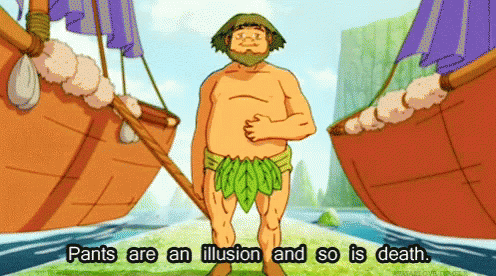
#star wars#jedi philosophy#jedi#jedi code#star wars prequels#jedi order#the force#star wars meta#me a star wars tumblr actually writing star wars meta?#it’s more likely than you think#long post#krayt meta
416 notes
·
View notes
Note
I follow someone who peaced out of C3 like a month ago, and while she still throws out the occasional post about it, despite mostly running on ✨vibes✨ since pre-Predathos fight. one of her latest takes caught my attention. The wording was a little messy, but the core argument seemed like it might have a point. She’s saying the biggest issue with the story is a lack of internal logic, which makes the characters feel kind of disconnected from their own world and setting. Her main example was the Schism, like, the general idea that the Titans were bad news for mortals should be widely accepted, and they’re dead so they’re not coming back even if the gods leave. She also argues that the idea that the gods would always choose each other over mortals isn’t really backed up by history. Basically, she thinks Bells Hells ignore some of the fundamental structures of modern religion in Exandria, which in turn makes a lot of their arguments about the gods fall apart.
So I guess I’m wondering does it seem like there’s a lack of internal logic to you? C3 is my first campaign, so I’ve been piecing together older lore as I go, and I can’t tell if this is a niche take or if there’s some bigger context I’m missing.
Yes. Or rather, I have a couple of different guesses as to what happened. In short: I think that either Matt wanted to set up a big dilemma and failed to do the worldbuilding to really support it textually; he didn't have a clear vision of what this would be at all (HUGE fucking mistake, like, actually concerning me re: the potential of a 4th campaign level of mistake and I hope it's not that); or, alternately, and honestly right now my guess is that this was the case, he straight up did not think the characters would be such selfish dickbags and thought going in that this would be a clear "we have to stop Predathos" and intended the familial connections within the Vanguard and the scene in Hearthdell to be added nuance to provide some understanding of the Vanguard not as simply mindless evil monsters but people who have genuine grievances that have been exploited by predatory cult leaders, and was not prepared for a campaign where the party immediately took the Vanguard's side.
Religion in Exandria has never been super formalized or organized. Some of this is, of course, that you don't have to like, convert or even attend services if you have a relationship with a god. But as a result, it means that any exploration of religion as hegemonic falls apart. I am not saying religion needs to fit the regular daily or weekly practices many people irl have (depending on one's levels of observance), and those characters whose powers canonically involve a deity often do observe either restrictions (Caduceus's vegetarianism) or have some form of meditative personal worship, but we never see like, a system of worship outside of Vasselheim, and Vasselheim lacks the powers that the real-world pope has (let alone the medieval era pope). Tuldus was forced by his family to pray, but it's never depicted as part of How All Worshipers of That God are expected to behave. This is really the crux of a lot of problems with this campaign - people keep taking very individualized issues - which are real, but individual - and treating them as a sign of widespread oppression that simply isn't backed up by the text. In fact, the biggest case of widespread religiously-involved oppression is the Empire going after worshipers of illegal Prime Deities (as we see with the Schuesters - the parents are arrested, leaving their young children to fend for themselves) - and the biggest case of widespread proselytizing and missionary work is from the canonically theocratic (and ruled by one person for over a millennium) Kryn Dynasty, which, hilariously, might end up even more powerful given that the Luxon - the source of their religion, their philosophy and cultural practices, and their arcane prowess - has been brought up as relevant to the gods-become-mortal plan by the Raven Queen and seems to not be under any threat from Predathos, and might even get more powerful. Vasselheim's colonial efforts, while certainly not defensible, are small potatoes.
The player character's grievances against the gods all boil down to "I prayed to the gods and they didn't make my life better" while failing to consider that a combination of genuinely wild specific personal circumstances (being Ruidusborn; being the child of an elemental-worship cult with terrible instincts and later running a heist on a Vanguard collaborator; being a shadow sorcerer who caught the eye of an evil Vecna-worshipping wizard in need of a host body) are the root cause. It's like. If your parents kick you out for being gay, that's homophobia, but if your parents are part of a cult that blows itself up and you are orphaned as a result that is not systemic oppression, that is a very specific cult and shitty parents. So that fails to really ground them in the setting. Compare to campaign 2, where Caleb wants to ensure the Volstrucker program is brought to light and eliminated - as he says, no more children on the pyre - vs. here, where arguably Laudna and Ashton are opening the door to far more unregulated cult/evil necromancy shenanigans now entirely unmitigated by the gods. At least Imogen will probably end the Ruidusborn I guess, as a side effect completely unrelated to her actual goals (which are, frankly, unclear) In a campaign that talks about tethers, the characters seem untethered to anything - institution, place, even for the most part family, and only loosely to each other, and it shows in their lack of care.
The other part is that yeah, a lot of things that were given to the Mighty Nein and Vox Machina as "things people would know" aren't given to Bells Hells. Now this could have a mechanical basis, namely, no one has much of a formal education and most of them are also not terribly intelligent on their own. However, it does feel baffling that they can't recognize holy symbols, or don't know the story of the titans at the time of the Schism (which...setting aside the many issues with the concept of "history is written by the victors" which is both inconsistently true in the first place and is frequently used in an anti-intellectual manner to undermine historical study that points out such things as historical racism; just because history might be inaccurate that does not mean that wild speculation otherwise is necessarily true, especially since we do know from EXU Calamity that titans did, indeed, intend to side with the Betrayers against mortals at the start of the Calamity). It furthers this feeling, after Vox Machina being relatively educated even in a story that was not as worldbuilding-focused, and the Mighty Nein having multiple research-oriented characters and a party deeply rooted in a rich world, that Bells Hells feel off and adrift and ignorant, especially since they don't even seem to remember history they lived through such as the Apex War.
Honestly, what I think is most interesting actually is that we don't ever get anyone express a motivation based on structural oppression in-game. Ludinus never got over his parents dying in a war where the options for the Prime Deities were leave mortals to die or fight the Betrayers, knowing there will be devastating casualties, but in setting up his elaborate plot he murdered countless people, destroyed through his communing with Predathos the first rebuilt elven society in Western Wildemount, and participated in actual structural oppression within the Dwendalian empire for literal centuries; he cared not for any widespread liberation and would remain on top, as an archmage, after this imagined revolution, which makes it not much of a revolution worth having. Liliana's problems were caused by Predathos, and many of the Vanguard we see are Ruidusborn. The only other Vanguard we really get to talk to are Bor'Dor, who was oppressed on the basis of his religion and preyed upon by the cult; Tuldus, who see above; and various Paragon's Call members who are mostly just following orders and getting paid. And Bells Hells, when they have the audience of Vasselheim and the rest of the world - a golden opportunity to call out the colonialism - fail to bring up Hearthdell.
In the end, the motivations are all personal pain - in many cases, inflicted, in fact, by Predathos and not the gods - or vengeance. I honestly don't know if the narrative is trying to claim there is something deeper, or if it's simply some of the characters and a chunk of the least knowledgeable fans, but yes, the worldbuilding fails to support a morally complex narrative. It fails to debunk that which was established earlier (and indeed makes the fall of Aeor far more sympathetic than when it was introduced during Campaign 2) and fails to establish any widespread harm the gods did that wasn't the result of someone threatening to kill them. I do not think one can meaningfully debate with someone who puts a boot on your throat, presses down, and claims you're the oppressor when you fight back, nor with someone who argues along those lines, and that's all that fans and Bells Hells have ever done. And yeah we might actually make a world with a formalized hegemonic religion as a result of Bells Hells' actions; it just will be a different god, underscoring that this is either motivated by people who don't know what the fuck is going on; or by vengeance rather than justice.
#this one gets maintagged#critical role#answered#anonymous#anyway though it will be fucking funny if the dynasty becomes the main world superpower and the luxon state religion#ludinus da'leth truly keeps losing
157 notes
·
View notes
Text
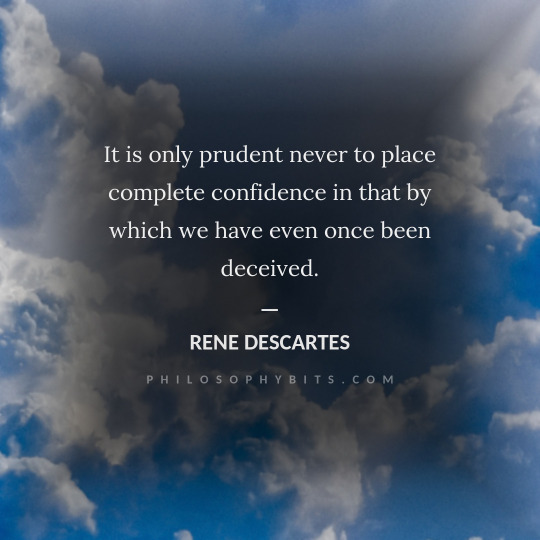
#philosophy#quotes#Rene Descartes#Meditations on First Philosophy#Descartes#trust#deception#skepticism
3 notes
·
View notes
Text
I know it seems like
it’s ending. But there’s no such
thing in the first place.
🍁 Red Leaf Haiku by © John Clark Helzer
#redleafhaiku#haiku#poetry#poems#poem#meditation#poets on tumblr#inspiration#philosophy#writing#know#ending#beginning#end#first#place#no such thing#i am a god
2 notes
·
View notes
Text
Influenced
(All characters are 18+)
Elliot Turner had always been the kind of guy who thought three steps ahead. He was clever, witty, the kind of kid who spent his time buried in books and online articles about philosophy, science, and the complexities of human nature. At 18, he was getting ready to graduate from his small town in England, a place where he knew everyone but had always felt like an outsider. Being gay wasn’t the issue; he’d come out years ago and had the support of his best friends. But it was the rest of his life that always felt a little... off. His intellect set him apart from others. It made him feel different—and sometimes, alone.
Lately, though, Elliot couldn’t shake the feeling that maybe he was tired of being the smart, introspective guy. He envied those people—those influencers, effortlessly cool, living these perfect, carefree lives. He’d always thought they were shallow, superficial. But now? The idea of shedding his complex self and becoming someone who just fit in seemed more and more tempting.
Then, one day, he saw an ad pop up on his screen. “Want to become who you were always meant to be? Unlock your true potential with the Perfect Persona Transformation!” It promised something extraordinary: a complete transformation into the person of your dreams. The ad had a picture of a glowing, confident guy with perfect teeth and an even more perfect smile. It was tempting, irresistible in its simplicity.
Elliot wasn’t someone who typically fell for gimmicks, but lately, he felt desperate for change. He clicked the link without thinking.
The process was straightforward—too straightforward. Fill out a form with some vague questions about your goals, desires, and personality. He answered quickly, not really caring about the specifics. He was after a life that wasn’t so... complicated.
He clicked "Submit." Paid with his card. And within minutes, he received an email with a link to begin the transformation.
What did he have to lose? Maybe it was a self-help app, maybe some guided meditation, but he was curious now. So, he clicked.
The transformation came fast.
It started with a tingling, a pulse of static electricity that crawled beneath his skin. He felt dizzy, lightheaded, like his body was being rewired from the inside out. His fingers twitched, his chest constricted, and before he could process what was happening, the world around him went white.
When the whiteness cleared, he wasn’t Elliot Turner anymore.
The first thing he noticed was his body—taller, broader, with wide, muscular shoulders and smooth, golden skin. He was... beautiful. His reflection in the mirror was almost too perfect to believe. He ran his hand through his hair and immediately felt it part perfectly down the middle, a tousled, effortlessly styled middle part that framed his face like he was straight off a magazine cover. It was exactly the kind of hair that made people want to touch it.
He stared at himself. His face was chiseled now—strong jawline, sharp cheekbones, lips that looked like they were made for smirking. The kind of face that made people stop and stare.
“Okay,” he muttered, his voice sounding lower, more assured. It had a hint of an accent, Swedish, maybe? And when he looked down at his phone, it wasn’t his old phone. It was new, sleek, almost too shiny, and filled with notifications.
His name wasn’t Elliot anymore.
“Lukas... Vikström?” he said aloud, his lips forming the name like it was part of a new persona that fit him perfectly. Lukas Vikström. Lukas. It rolled off his tongue effortlessly, like it had always been him.
The memories hit him, flooding his mind like a storm. His old life, his real life, seemed so far away now. He was Lukas Vikström, a popular 18-year-old influencer from Stockholm. He was carefree, charming, the kind of guy who posted selfies in designer clothes, surrounded by beautiful people at parties, on yachts, in the best clubs.
He didn’t question it. He didn’t need to. His new life was easy. The weight of his old self, the thinking, the analyzing, the searching for meaning—it was all gone. All that mattered now was looking good, feeling good, and being admired.
The notifications on his phone were endless. Brand deals, new followers, dozens of new comments saying, "Lukas, you're perfect!" "Goals!" "I want to be you!"
He felt something warm spread through his chest. Pride? Maybe. But it felt more like... freedom.
The next morning at school, Lukas walked down the hall, effortlessly gliding through crowds of students. The whole school practically stopped to stare as he passed, everyone whispering about him, wanting to get close.
“Lukas, you’re the best! Let’s take a selfie!” someone shouted.
He grinned. His old self—Elliot—would have rolled his eyes, maybe even scoffed at the idea of taking selfies like it was beneath him. But Lukas? He didn’t even think twice. He struck a pose, effortlessly pulling a perfect, playful smile for the camera, like he'd done it a thousand times before.
He checked his Instagram as he walked, seeing his latest post racking up thousands of likes in a matter of minutes. He didn’t need to think about captions anymore—he just knew what people wanted to hear. A picture of him looking effortlessly perfect, his tousled hair falling just right, his grin radiating the kind of carefree energy people craved.
"Feeling amazing today, guys," he typed, his fingers moving quickly, instinctively. "Hope you’re all living your best life! Be happy, be hot, and don’t let anything hold you back! Love you all ❤️"
And that was it. Lukas Vikström didn’t care about deep thoughts or complicated ideas. He was who everyone wanted to be, and that was enough.
As he walked into his next class, Lukas was already thinking about what brand deal he’d sign next, what he’d post later, who would tag him in their story. It was a game now, and Lukas was playing it better than anyone.
Then came Sofia.
Sofia Johansson was the kind of girl everyone talked about. Her Instagram was practically a shrine to fashion, perfect selfies, and vacay pictures. Blonde, tan, and impossibly beautiful, she made her living out of posting sponsored content for beauty brands and posing at luxury events. But, like many influencers, she was... a bit ditzy.
Her captions were short, often full of emojis and half-thoughts. “Chillin’ at the beach with my fave bikini 💖🌴” or “Can’t believe how amazing this pizza is!!! 🍕😍 #sponsored.”
But despite her ditzy ways, Sofia had a magnetic charm. She didn’t need to be deep. People adored her for it.
The first time Lukas met Sofia, he was at a party—of course, it was a glamorous influencer event. There she was, draped in a designer dress that seemed to sparkle even more than her smile, her hair a perfect cascade of waves. When their eyes met, Lukas felt something stir inside him, something that wasn’t just admiration for her beauty.
She flashed him a playful grin, tilting her head like she was trying to figure him out. “You’re Lukas Vikström, right?” she asked, with a hint of excitement in her voice.
He nodded, offering his most charming smile. “Yeah. And you must be Sofia Johansson.”
“Oh my god, yes! I love your Instagram. You’re, like, totally goals 😍. We should totally collab sometime!” she said, practically bouncing with energy.
Sofia was everything Lukas now wanted—effortlessly glamorous, always in the spotlight, and completely free from any complicated thoughts. She was living in the moment, with no care for deeper meanings. And, to Lukas, that seemed perfect.
Within a week, they were an inseparable duo. Lukas would post pictures of them together, each shot more polished than the last—at parties, at luxury resorts, in the best clubs. Sofia was just as carefree as he was now, matching his vibe perfectly. They were a power couple—beautiful, sought after, adored by millions.
Her ditzy, bubbly personality fit perfectly into Lukas’s new world. They spent hours taking selfies together, posting stories, and planning brand deals. At first, Lukas had thought she might be a bit too... air-headed for him. But he quickly realized—she was perfect. She didn’t question anything. She didn’t think deeply about anything. She just enjoyed life.
And so did Lukas now.
By the time school ended for the day, Lukas was more than just the guy everyone talked about. He was the guy everyone wanted to be.
And as he and Sofia posed for yet another selfie, Lukas couldn’t help but smile.
This was it. This was his life now. The life he was always meant to have. Carefree. Perfect. Hot.
And he wasn’t about to change it for anything.

210 notes
·
View notes
Text
How the ���Avatar Legends’ retcon fails Kya
Let me show you 2 moments from TLOK:
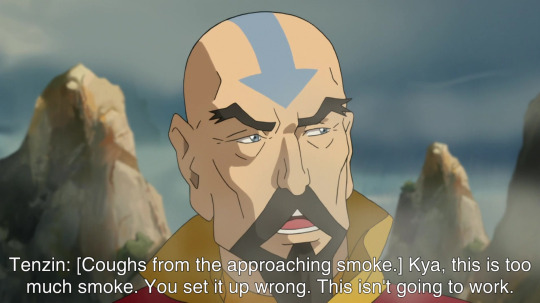
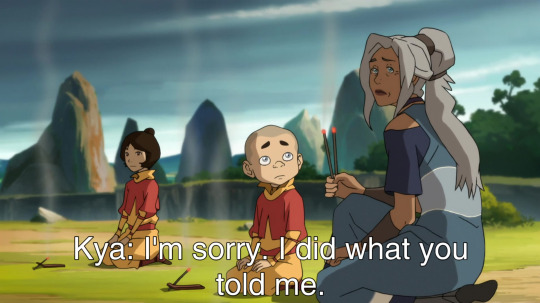
season 2, episode 9
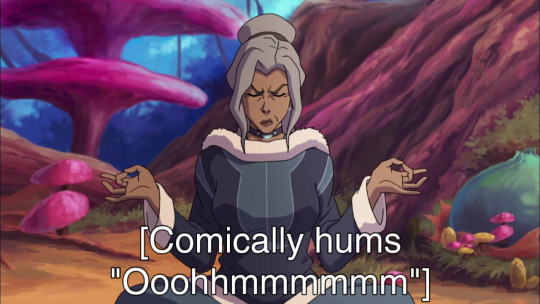
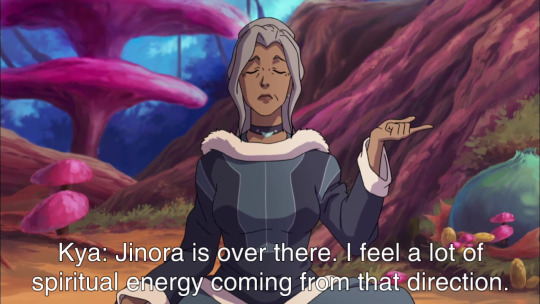
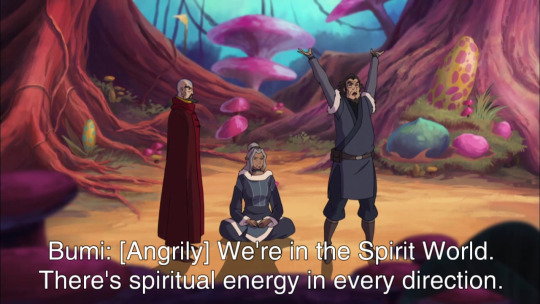
season 2, episode 13
Both of those moments deliver the same joke: Kya doesn’t know how to meditate and when she attempts it, she ends up clumsily messing it up. In the first instance, it’s even a visual joke: Check how Jinora and Meelo, 2 characters who know how to meditate, have one stick of incense placed in front of them while Kya is awkwardly holding 2 sticks.
These jokes take on a deeper meaning when you read how the showrunners first conceived the character of Kya:

The Legend of Korra show bible
They envisioned Kya as someone who didn’t know her father very well- therefore, she doesn’t really know his culture or how to practice it.
Then in 2022, we got this retcon:

[…] she did internalize some of his [Aang’s] lessons about philosophy, meditation, and balance, holding them close to her heart for her whole life. Now, as the Air Nation's growth strains its leadership's time and energy, Kya has stepped up to help teach those same lessons her father taught her, both at Air Temple Island and out of her Dragon Flats-based clinic.
If you have encountered any K*taang account in the wild, you know that this semi-canon paragraph has been wildly celebrated. Now, out of nowhere, Kya knows meditation so well that she can teach classes about it! Hooray!
Bryke, stop bullshitting us. You established twice over that Kya doesn’t know how to meditate, you can’t erase what you portrayed in your show and try to convince us that she was a meditation expert all along. It’s clear that the showrunners don’t care about the Kya as a character, they see her as a tool to clear the mistake that they made when they wrote TLOK!Aang as a neglectful father.
Anyways, here is the full information that we get about Kya in Avatar Legends and I’d like to remark my favorite quotes:
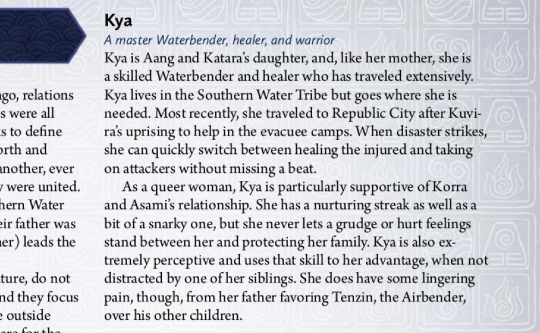


“When disaster strikes, she can quickly switch between healing the injured and taking on attackers without missing a beat.”
“She does have some lingering pain, though, from her father favoring Tenzin, the Airbender, over his other children.”
“When she's in the city, the waterbending master Kya runs a free clinic out of a converted tenement in the middle of Dragon Flats. The clinic provides physical and mental healthcare, preventative to emergency, to a neighborhood that most needs it and can least afford it.” (emphasis mine)
“Katara broke boundaries as the first woman known to modern history to receive formal training as a master of both waterbending combat and waterbending medicine. Her daughter Kya was part of the first generation of young Waterbenders to learn both disciplines side by side.”
“Kya grew up frustrated that the world saw her as just a Waterbender, and not another child of Air Nomad heritage. Yes, she is an expert Waterbender, and she gladly accepted the traditions and culture of her mother... but she has always felt an affinity with Air Nomad culture. Her father taught Tenzin about Air Nomad culture far more than he taught either her or her brother Bumi […]” (empashis mine)
I love Kya so much. I wish the writers did as well.
#tlok critical#anti lok#katara deserved better#anti bryke#anti tlok#anti kataang#lok critical#kya deserved better
152 notes
·
View notes
Text
LOUD.
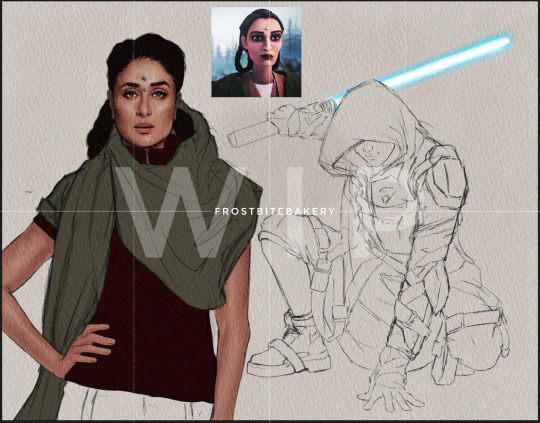
Depa doesn’t take one look at Anakin Skywalker and wishes him to be her Padawan. She takes three.
Studying the art of Soresu has taught her many things. How to protect others, how to protect herself, how to wear someone down without being worn out in return.
While Obi-Wan had… Depa doesn’t want to call it “hop around”, but Obi-Wan had seemed rather indecisive after Attaru had turned out to be not the right choice.
Depa’s first and only choice had been Soresu. While Mace had shed a theatrical tear that she wouldn’t follow in his footsteps, she’d been enamored with the philosophy of the form.
Her first look at Anakin had been upside down.
She’d come across Obi-Wan showing Anakin the Temple when she’d seen him sign “a change in perspective can reveal what is right in front of us”. The context hadn’t mattered much, just that Obi-Wan had hugged the boy around his middle and the next thing Anakin was upside down and pointing excitedly.
“Oh there it is!”
She hadn’t thought much of it until Obi-Wan had shown up at her doorstep.
He had felt some darkness in the child. His erstwhile Master was murdered by a Sith. He had murdered the Sith.
“Everything is rather tumultuous,” he had signed to her raised brow.
Anakin needed a stabilizing presence here and all of Obi-Wan’s friends were either crazy or up to their necks in trial prep.
“I’m flattered, Padawan Kenobi,” she had replied, “let’s spar.”
Sparring was, in the end, more moving meditation but she felt his mind slowing its frantic pace, the events of the past weeks shifting into understanding.
They’d sat in silence for a long time. His cheek ended up on her shoulder and she dropped her chin on his head.
“Sleep, Knight Kenobi,” she’d said softly. Much had been revealed during their meditation after all.
He had tapped a thank you on her arm.
Depa had taken her second look at Anakin after that.
A handful of a boy and she felt overwhelmed just by being near him. Only a Master’s Master would be able to train him when the time came.
Though she enjoyed his presence. Soaking up knowledge like a sponge, being deeply engrossed in tinkering with parts. The Force so close to the surface, like a maelstrom, but calming when Anakin had been given the right tools.
So bright the dark was almost unnoticeable. But Depa noticed. Wanted to help the boy overcome the darkness.
Depa had taken a third look at Anakin a few years after Obi-Wan had first brought him to the Temple, and she had realized that her wish to help him had transformed into wishing to train him.
“Yes! I feel so ready to begin my training,” Anakin had replied to her question, face alight with excitement and the jitters he couldn’t hide. “Ga’Tran said a Master chooses their Padawan but Loni said that’s…”
“Kriffing banthashit?” Depa supplied drily and felt Anakin laugh in the Force and her heart. “Anakin?” She wanted to at least offer. She wouldn’t be mad if he declined, life would move on and she’d still be there for him. But she wanted him to know that, now, gladly, with honor, she wanted to train him.
525 notes
·
View notes